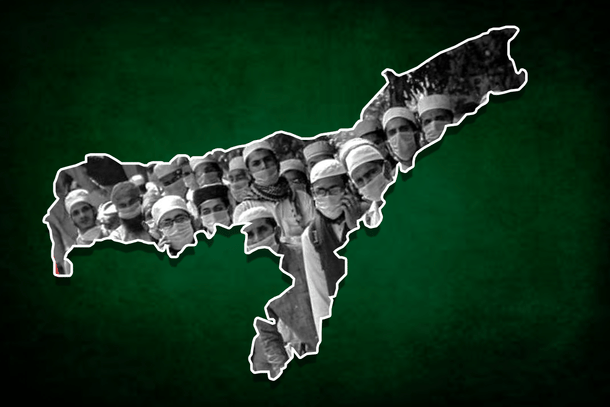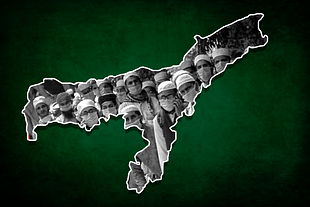Politics
Assam’s Indigenous Muslims Accuse Tablighi Jamaat Of Radicalisation, Plan Lawsuit Against Outfit
Jaideep Mazumdar
Apr 06, 2020, 12:26 PM | Updated 12:26 PM IST
Save & read from anywhere!
Bookmark stories for easy access on any device or the Swarajya app.


Assam’s indigenous Muslims are outraged over the conduct of Tablighi Jamaat (TJ) activists who have returned to the state from the congregation held earlier this month at the Banglewali masjid in Delhi’s Nizamuddin and are planning to file a lawsuit against the outfit.
The Sadou Asom Goria Moria Deshi Jatiya Parishad, the representative body of Assam’s 40 lakh indigenous Muslims, has also condemned the outfit’s activities and said the Tablighi Jamaat is radicalising Muslims of the state.
“The Tablighi Jamaat has endangered the lives of countless people of the country with its irresponsible behaviour. By going ahead with the congregation even after the Union Government advised against large gatherings and then keeping delegates in cramped spaces, the Tablighi Jamaat has broken the law and endangered public health,” Parishad general secretary Mainul Haque told Swarajya from Guwahati.
Haque said that most activists of the Tablighi Jamaat are people of East Pakistani (and Bangladeshi) origin. These Muslim migrants are known in Assam as mias in order to distinguish them from the indigenous Muslims.
The indigenous Muslims are known as Gorias, Morias, Deshis and Jolhas depending on their origins and lineage.
“However, over the past five to seven years, many people from our (indigenous) communities have got attracted to the Tablighi fold and joined it. These people (Tablighi Jamaat activists) go around Muslim-inhabited areas and preach an orthodox form of Islam which is alien to Assam,” said Haque.
“We (indigenous Muslims) have practised a very syncretic form of Islam in Assam and have always been close to the Hindus and Vaishnavaites (followers of Srimanta Sankardev). I myself help out in the annual ambubachi mela (at Kamakhya mandir) and participate in many other Hindu religious festivals,” said Haque.
However, the Tablighi Jamaat activists have been preaching a puritanical form of Islam that prohibits participation in Hindu religious festivals or even visiting mazars. This, says Haque, had resulted in many Muslims, including a section of indigenous ones, becoming very orthodox and then getting radicalised.
“We have noticed this alarming trend of Muslims in Assam getting radicalised. This is damaging the social fabric of the state and poses a threat to Assam’s integrity and to the nation as well. We want this to stop. The brainwashing of Muslims by the Tablighi Jamaat must end,” said Haque.
The lawsuit that the Parishad will file against the Tablighi Jamaat will also claim damages from the outfit. “We will seek imposition of very stiff penalties on Tablighi Jamaat. It should bear the cost of treatment of all its activists and all those who were infected by its activists, as well as the cost of quarantine and other expenses that the state and union governments are having to incur because of their utter irresponsibility,” said Haque.
Many other indigenous Muslims of the state have written to the Parishad and also to the state government expressing alarm over the Tablighi Jamaat’s activities and demanding that a strict watch be kept on it. Some prominent indigenous Muslims of Assam also want the imposition of severe curbs on the Jamaat’s activities.
“The Tablighi Jamaat advocates that Muslims should lead austere lives just as the Prophet and His followers did. They brainwash people and make them orthodox. This leads to intolerance towards followers of other religions. And that’s just one step away from becoming a radical and an Islamist who then starts hating other religionists, thus becoming a ready recruit for terror outfits”.
“The global fight against terror has to start with banning and banishing outfits like the Tablighi Jamaat and putting all its leaders behind bars. Their activities have to be nipped in the bud. Outfits like the Tablighi Jamaat sow the seeds of hatred and terror,” said a prominent Muslim intellectual — an ex-principal of a premier college of Guwahati — who did not want to be named.
This opinion finds resonance among a large number of indigenous Muslims of Assam
Jaideep Mazumdar is an associate editor at Swarajya.





